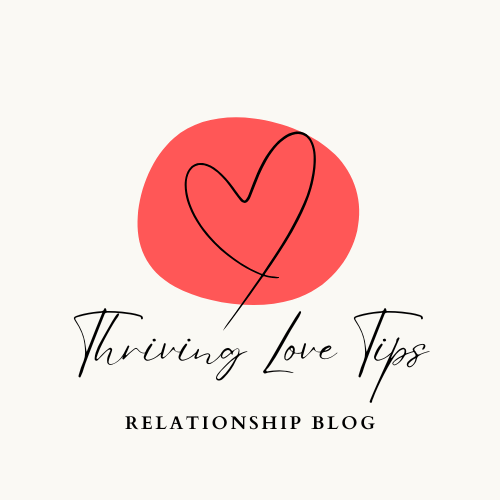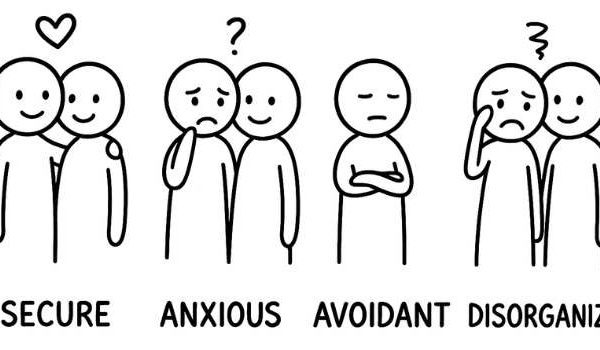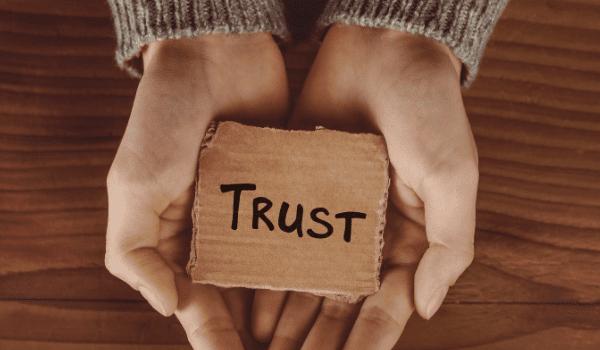Whether you’re newlyweds or have been together for decades, journaling together can be a powerful tool to strengthen and deepen your relationship. You can gain new insights, enhance communication, and create a lasting bond by taking the time to sit down and reflect on your experiences as a couple. In this article, we will explore the benefits of journaling together and provide practical tips on how to get started on this beautiful journey.
The Benefits of Journaling Together
Journaling together can have numerous benefits for your relationship. By sharing thoughts, feelings, and experiences on paper, you can strengthen your emotional intimacy, improve communication, enhance understanding and empathy, and foster trust and vulnerability.
Increasing Emotional Intimacy
When you journal together, you have a safe space to express your deepest emotions and thoughts. This sharing of innermost feelings can create a deeper emotional connection between you and your partner. By understanding each other’s emotional landscapes, you can cultivate a stronger bond and experience a greater sense of closeness.
Improving Communication
Journaling together can also improve your communication skills as a couple. By consistently engaging in written dialogue, you develop a habit of expressing yourselves clearly and effectively. This practice can spill over into your verbal communication, allowing you to better understand and express your needs, desires, and concerns.
Enhancing Understanding and Empathy
Through journaling together, you gain insight into each other’s perspectives and experiences. By taking the time to read and reflect on each other’s entries, you can develop a deeper understanding of your partner’s thoughts and emotions. This increased understanding fosters empathy, which can lead to more compassionate and supportive interactions in your relationship.
Fostering Trust and Vulnerability
Journaling together requires vulnerability and trust. Sharing your personal thoughts and experiences can be intimidating, but it also allows for growth and connection. By opening up to each other through journaling, you create a safe and nonjudgmental space for sharing. This fosters trust and a sense of security within your relationship, strengthening the bond between you and your partner.
You may also like: 100 Favorite Things Questions
Choosing the Right Journaling Method
To fully embrace the benefits of journaling together, it is important to choose the right method that suits both you and your partner’s preferences. There are several options to consider:
Reflective Journaling
Reflective journaling involves writing freely about your thoughts, feelings, and experiences. It is a more introspective approach that allows you to explore your inner world and gain self-awareness. Both you and your partner can individually reflect on your experiences and share your entries with each other.
Prompt-Based Journaling
Prompt-based journaling provides specific topics or questions to guide your journaling practice. This method can help spark conversations and facilitate deeper exploration of specific aspects of your relationship. You can take turns selecting prompts to keep the journaling experience engaging and diverse. You can try the following journal prompts for couples.
1. Write about your favorite memory together and why it’s special to you.
2. Discuss the things you’re grateful for in your relationship.
3. Write about your hopes and dreams for the future.
4. Describe your ideal date night.
5. Talk about what you love most about your partner and why.
6. Describe the qualities you admire in your partner.
7. Write about a challenge you’ve faced together and how you overcame it.
8. Discuss your communication styles and how you can improve them.
9. Write about a hobby or interest you’d like to explore together.
10. Talk about your love languages and how you can better fulfill each other’s needs.
11. Write about a trip or vacation you’d like to take together.
12. Describe a time when you felt really connected to your partner.
13. Discuss ways you can prioritize intimacy in your relationship.
14. Write about your favorite things to do together.
15. Talk about what makes you feel loved and appreciated.
16. Share a funny memory from your relationship.
17. Discuss your goals as a couple and how you can work towards achieving them.
18. Write about a challenge you’re currently facing and how you can overcome it together.
19. Describe what you admire about your partner’s personality.
20. Talk about ways you can support each other during difficult times.
21. Write about your favorite qualities in your partner’s physical appearance.
22. Discuss your values and beliefs as a couple.
23. Write about a song or movie that reminds you of your relationship.
24. Talk about your strengths as a couple and how you can use them to overcome challenges.
25. Write about a time when you felt proud of your partner.
26. Discuss ways you can create more quality time together.
27. Write about a special moment in your relationship that you’ll never forget.
28. Talk about ways you can show appreciation for each other more often.
29. Write about your favorite place to go together.
30. Discuss the ways in which you complement each other as a couple.
Collaborative Journaling
Collaborative journaling involves writing together in a shared journal. This method allows you to have a continuous written conversation, with each person adding their thoughts and reactions to the ongoing dialogue. Collaborative journaling can be a dynamic way to exchange ideas and deepen your connection.
Choosing the right journaling method is a personal choice, and you may find that a combination of these techniques works best for you and your partner. Flexibility and experimentation are key in finding the method that resonates most with your unique relationship dynamics.

Creating a Journaling Routine
Establishing a journaling routine is essential to make journaling a consistent practice within your relationship. Here are some tips to help you create a routine that works for both of you:
Setting a Regular Schedule
Choose a time and frequency that works well for both you and your partner. It could be a few designated evenings during the week, Sunday mornings, or any other time that allows for uninterrupted reflection and writing.
Finding a Comfortable Space
Create a comfortable and inviting environment for your journaling sessions. Find a quiet space where you are not likely to be disturbed. Consider adding cozy blankets, soft lighting, or calming scents to create a soothing atmosphere that encourages relaxation and self-expression.
Gathering the Necessary Materials
Have all the necessary materials readily available. This includes journals, pens, pencils, or any other writing instruments you prefer. Consider using special journals that hold personal meaning or have a unique aesthetic appeal. By having your materials ready, you can easily dive into your journaling practice without any obstacles.
Remember, the goal is to establish a routine that feels accessible and enjoyable for both of you. Flexibility is key, so feel free to modify your routine as needed to accommodate any changes that may arise in your schedules or preferences.
Setting Journaling Goals
Setting goals for your journaling practice can help you and your partner stay focused and motivated. Consider the following suggestions when establishing your journaling goals:
Identifying Mutual Objectives
Discuss and identify what you hope to achieve through journaling together. It may be to deepen your emotional connection, resolve conflicts, or simply have a space for self-reflection. Aligning your goals allows you to have a shared purpose and work towards common aspirations.
Tracking Relationship Evolution
Use your journaling practice to document your relationship’s growth and progress over time. Reflect on how your communication has improved, conflicts have been resolved, or new understandings have emerged. This tracking helps you appreciate the positive changes and highlights areas where you can continue to grow together.
Celebrating Milestones
Celebrate milestone moments in your relationship through journaling. Birthdays, anniversaries, or any other significant events can be commemorated by writing letters to each other. Express your appreciation, share your hopes for the future, and celebrate the love and connection you share.
Setting journaling goals adds depth and purpose to your practice. It keeps you engaged and reminds you of the positive impact journaling can have on your relationship.
You may also like: 12 Steps to Reignite the Spark in a Relationship
Discovering New Perspectives
Journaling together allows you to explore different perspectives and gain a deeper understanding of each other’s experiences. Here’s how:
Reflecting on Individual Experiences
Take turns reflecting on your individual experiences and emotions. This process allows each of you to share your thoughts and feelings without interruption or judgment. By dedicating time to understand each other’s unique experiences, you can better support and empathize with one another.
Sharing Different Points of View
Journaling together also gives you the opportunity to understand each other’s perspectives on shared experiences. By reflecting on the same event or situation from two different viewpoints, you can gain a richer understanding of how you both perceive and interpret the world around you. This understanding promotes empathy and a deeper connection.
Exploring Shared Dreams and Aspirations
Utilize your journaling practice to explore your shared dreams and aspirations. Write about your individual goals and desires, as well as the ones you have as a couple. This exploration can foster a sense of unity and create a roadmap for the future, aligning your visions and fostering a shared sense of purpose.
By dedicating time to consider different perspectives and shared aspirations, you can strengthen your bond and deepen your connection as a couple.
Resolving Conflicts Through Journaling
Conflict is a natural part of any relationship, but how you navigate and resolve it can determine the strength of your bond. Journaling can be an effective tool for conflict resolution. Here’s how:
Expressing Feelings and Concerns
When conflicts arise, journaling provides a safe space to express your feelings and concerns without fear of judgment or interruption. By writing about the situation from your perspective, you can gain clarity and insight into your emotions, allowing for more constructive communication.
Engaging in Active Listening
Journaling also encourages active listening. By reading and reflecting on your partner’s entries, you can gain a deeper understanding of their perspective. This listening without immediate response allows you to fully absorb their thoughts and emotions, promoting empathy and strengthening your ability to find common ground.
Finding Common Ground
Through journaling, you can work towards finding common ground when conflicts arise. By sharing your thoughts and experiences, you can discover shared values, interests, or solutions that can lead to mutual understanding and resolution. Journaling together provides an opportunity for open and honest communication, leading to stronger conflict resolution skills within your relationship.
Using journaling as a tool for conflict resolution can transform conflicts into opportunities for growth and understanding, ultimately strengthening your relationship.

Using Journaling as a Tool for Growth
Journaling together can also foster personal growth and development within your relationship. Consider the following ways to utilize journaling for growth:
Setting Personal Development Goals
Encourage each other to set personal development goals and use journaling as a means to track progress. Write about your aspirations, challenges, and the strategies you employ to overcome obstacles. By sharing these goals, you can support and motivate each other in your individual growth journeys.
Documenting Lessons Learned
Documenting lessons learned through journaling helps you reflect on past experiences and extract valuable insights. By reviewing your entries, you can identify patterns, strengths, and areas for improvement. Sharing these insights with your partner allows for mutual growth and can spark meaningful conversations on personal and relationship development.
Supporting Each Other’s Growth
Journaling together creates an opportunity to support each other’s growth and encourage continuous learning. By discussing your goals and seeking feedback from your partner, you can cultivate an environment that prioritizes personal development. Through this support, you can nurture individual growth while strengthening your bond as a couple.
Journaling together can be a transformative tool for personal growth, allowing for self-reflection, shared learning, and continuous improvement within your relationship.
Enhancing Gratitude and Appreciation
Expressing gratitude and appreciation is essential for maintaining a healthy and fulfilling relationship. Here’s how journaling can help enhance these aspects:
Expressing Gratitude for Each Other
In your journaling practice, take the time to express gratitude for your partner. Write down what you appreciate about them and how they contribute to your happiness and well-being. By verbalizing your appreciation, you reinforce the positive aspects of your relationship and cultivate a sense of gratitude.
Acknowledging Acts of Kindness
Journaling allows you to acknowledge and reflect on the small acts of kindness and love that you and your partner demonstrate towards each other. Writing about these moments not only helps you appreciate them, but it also strengthens the connection and intimacy between you both.
Recognizing Relationship Strengths
Take time to reflect on your relationship’s strengths and write about them in your journal. Celebrate the qualities that make your connection special, such as trust, support, or shared values. By recognizing and highlighting these strengths, you reinforce the foundation of your relationship and foster a sense of appreciation.
Through journaling, you can consciously cultivate gratitude and appreciation, nurturing a positive and fulfilling relationship.
You may also like: How to Overcome Insecurities in a Relationship: 11 Effective Tips
Maintaining Privacy and Trust
Journaling together requires a foundation of privacy and trust. Here’s how you can ensure a safe and secure journaling environment:
Establishing Journaling Guidelines
Establish clear guidelines and boundaries for your journaling practice. Discuss what is appropriate to share in your entries and what should remain private. Respect each other’s boundaries and be mindful of the sensitive nature of personal thoughts and emotions.
Respecting Boundaries
Respect your partner’s privacy by refraining from reading their entries without permission. Trust is built on mutual respect, so honor each other’s boundaries and commit to maintaining confidentiality unless explicitly agreed upon otherwise.
Building Trust Through Transparency
Regularly communicate and check in with each other about your journaling experience. Discuss any concerns or discomfort that may arise and address them openly and honestly. Building trust through transparency promotes a sense of safety and respect within your journaling practice.
By prioritizing privacy and trust, you create a space where both you and your partner can feel free to express yourselves fully, fostering a stronger connection.
Exploring Additional Journaling Techniques
While writing is the primary form of journaling, there are various techniques you can explore to enhance your practice:
Drawing or Sketching
If you and your partner enjoy visual expression, consider incorporating drawing or sketching into your journaling routine. Use images to represent emotions, memories, or aspirations. This creative approach adds a visual dimension to your journaling, stimulating different parts of your brain and providing a unique perspective on your experiences.
Using Photos or Collages
Incorporate photos or create collages within your journaling practice. Select images that evoke certain emotions or symbolize important moments in your relationship. These visual cues can enhance your reflection and serve as triggers for deeper exploration and connection.
Adding Quotes or Poems
Integrate meaningful quotes or poems into your journal entries. Find words that resonate with your current experiences or inspire you in different aspects of your relationship. These quotes can spark reflection and provide a fresh perspective, stimulating thoughtful exploration in your journaling.
Don’t be afraid to experiment with different techniques and find what resonates with you and your partner. The goal is to make your journaling practice expressive and personalized, creating a unique journaling experience that enhances your connection.
Final Thoughts
journaling together offers numerous benefits for your relationship. By increasing emotional intimacy, improving communication, enhancing understanding and empathy, and fostering trust and vulnerability, you can create a strong and resilient bond. Through reflective journaling, prompt-based journaling, or collaborative journaling, you and your partner can engage in a practice that suits your preferences. Establishing a journaling routine, setting goals, and exploring new perspectives can further deepen your connection and facilitate personal growth. From resolving conflicts and enhancing gratitude to maintaining privacy and trust, journaling offers a versatile tool for strengthening your relationship. So grab your favorite journal, sit down with your partner, and embark on a rewarding journey of journaling together.




